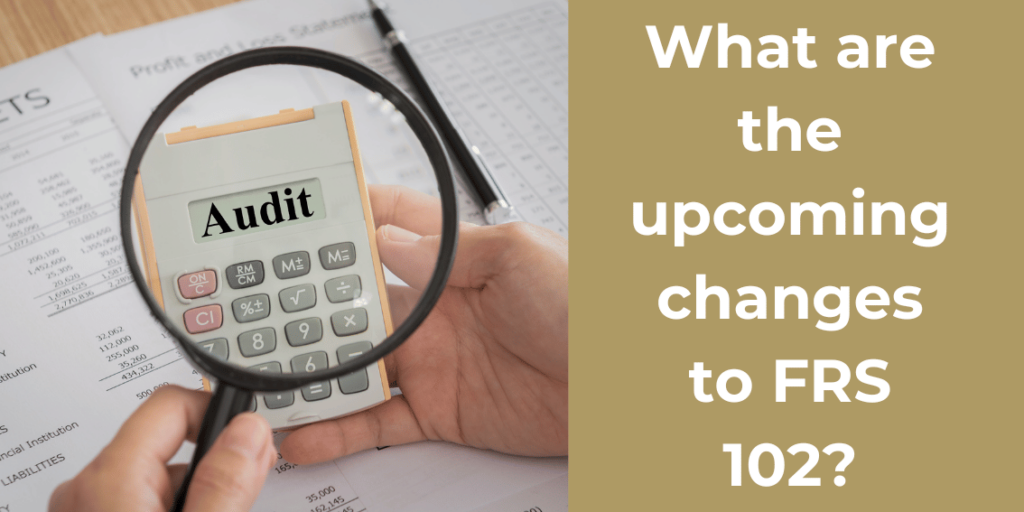What Are Statutory Accounts?

Statutory accounts, also known as annual accounts or financial statements, are a set of financial reports that companies prepare at the end of each financial year to report various financial measures and related disclosures for filing with Companies House.
In the UK, all private limited companies are required to prepare statutory accounts.
The purpose of statutory accounts is to provide shareholders with information about the company’s financial performance and to ensure compliance with financial reporting standards.
End of year accounts for companies and LLP’s can’t be avoided, but they can be complex and very time-consuming if you look after them yourself. For smaller entities in particular, it’s easy for annual accounts to stop you doing what you do best – running your business!
Our statutory accounts service frees up our clients’ time, so that they can focus on their main business activities. Our professional approach will ensure that your accounts are fully compliant with statutory requirements. Keep reading for an in-depth look at the subject from about statutory accounts experts.
End of Year Accounts
All businesses in the UK which are registered with Companies House must prepare and submit annual statutory accounts. There are a number of reporting requirements and accounting standards to comply with, which can be a challenge to handle without expert help.
Once submitted, annual accounts can be viewed publicly at the Companies House website. On top of the importance of meeting Companies House requirements, the financial information you supply can have a bearing on business relationships with suppliers, creditors, landlords and other commercial connections.
Perrys Chartered Accountants will prepare and submit your annual accounts, ensuring that all your year end accounts are in good order and fully comply with Companies House requirements.
Finding an Accountant for Statutory Accounts
We look after statutory accounts for companies throughout London, Kent and neighbouring counties from our network of offices in the region. We work with all sizes of business, and across a range of industries and professions. As well as central London, our offices are located at Chatham, Orpington, Tonbridge, Tunbridge Wells, West Malling and Wrotham.
Our expertise includes providing different accounts information which must be supplied according to annual turnover, balance sheet total and number of employees. We look after a full range of accounting requirements including:
- Small company accounts
- Medium-sized company accounts
- Large company accounts
- Dormant company accounts
Regardless of the size or type of your company, Perrys Chartered Accountants has the experience and expertise to undertake statutory accounts, statutory audits and all other company accounting requirements to the highest professional standards. We can also assess whether you will need a statutory audit or non-statutory audit.
Year End Accounts
As well as submitting your annual statutory accounts to Companies House, we will also make sure they are ready for HMRC along with your company tax return.
Our clients trust us, year after year, to handle their company accounts and tax returns seamlessly and efficiently – and we always do.
What is the difference between statutory accounts and management accounts?
For clarity, it is important to understand the difference between statutory accounts and management accounts which are not statutory, even though they can cover much of the same ground.
Statutory accounts give an overview of financial activity, and used externally. Accounts can be viewed through Companies House records and provide potential clients, investors and partner businesses with a view of your company’s financial position.
Management accounts are produced for business owners and managers, usually every monthly or quarter. They will normally include a profit and loss report and a balance sheet.
They do not need to conform to any Companies House or HMRC rules and can be tailored to different audiences within the business.
What is included in statutory accounts?
Requirements for statutory accounts are that they include a profit and loss account, a balance sheet, for medium or large companies – a cash flow statement many also be required, notes to the accounts and a directors’ report and company information pages.
In detail, the information to be provided is as follows.
Company information
Your company information page will include:
- company name
- registered number
- registered office address
- directors’ names
- details of your accountant.
Directors’ report
This report summarises
- your principal business activities
- performance
- outlook
- dividends payable
- director’s names and responsibilities
The directors’ report is used to give a review the overall position of the company based on the financial figures supplied, and its prospects for the future. There is an obligation to include details of any significant financial events which have occurred after the period covered by the balance sheet, as well as changes in the company’s fixed assets. The report has to be signed off by a director and be agreed by the board.
For smaller companies, there is no requirement to include a Directors’ report. Smaller companies are defined by having a turnover of £10.2 million or less, a balance sheet with £5.1 million or less, and 50 employees or less.
Balance sheet
Balance sheets give a snapshot overview of a company’s assets, liabilities and shareholder equity at the year end.
Assets are either current or non-current and include:
- Land and buildings
- Property, plant and machinery
- Investment property
- Other investments
- Stocks
- Debtors, including accounts receivable
- Cash
- Bank accounts
Liabilities can include:
- Bank loans
- Bank overdrafts
- Accounts payable
- Corporation tax
- VAT
- Payroll liabilities
Equity can include
- Retained earnings, distributable and non-distributable
- Share capital
- Share premium
The balance sheet has to provide figures for the current reporting year and a comparative for the previous year if applicable, together with explanatory notes if needed.
The key equation in a balance sheet is:
Assets – Liabilities = Shareholder equity
Profit and loss statement
A P&L statement shows how much a business has earned and spent during the accounting year. This will include turnover and other income, and expenditure will cover cost of sales, overheads, expenses and all other outgoings.
The key figures to be supplied include:
- Turnover
- Cost of sales
- Gross profit
- Administrative expenses
- Operating profit
- Profit on ordinary activities before taxation
- Tax on ordinary activities
- Profit for the financial year
With these figures to hand, businesses are in a position to identify:
- how and when the business is most, or least, profitable
- opportunities for reducing costs
- profit trends over time
- profit margins
Cash flow statement
A cash flow statement shows the flow of money into and out of a company in a given period. The statement will include:
- cash flow from operations (mainly cash from customers and cash paid to suppliers)
- cash flow from finance (mainly cash from investors, and dividends to shareholders)
- cash flow from investment (mainly buying and selling assets)
Like Directors’ Reports, cash flow statements are not a statutory requirement for smaller companies, but they can be a useful tool for company owners and managers.
Notes to the accounts
Notes to the accounts provide extra detail for balance sheets or profit and loss accounts.
They also to give details of the accounting policies used, the basis of preparation, the policy for recognising turnover and the method of depreciation are derived.
When do statutory accounts have to be filed?
For newly incorporated companies, first accounts have to be filed 21 months after they have been incorporated. For future years, accounts must be filed within nine months after the end of the company’s financial year. Late filing can result in fines which increase with the length of delay and even prosecution action against directors.
Looking for help with statutory accounts? Then contact Perry Chartered Accountants today for a consultation.








